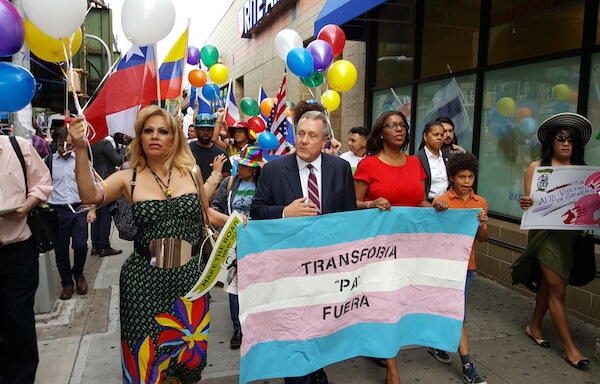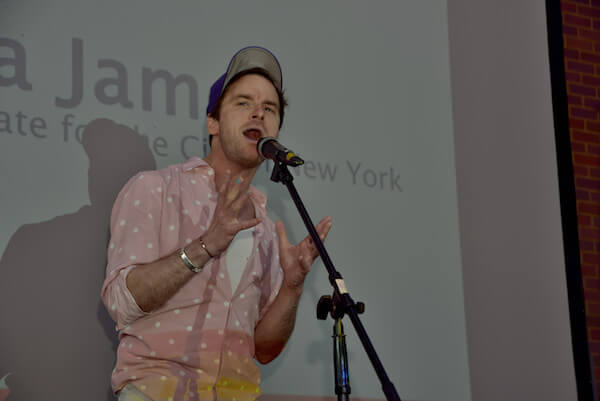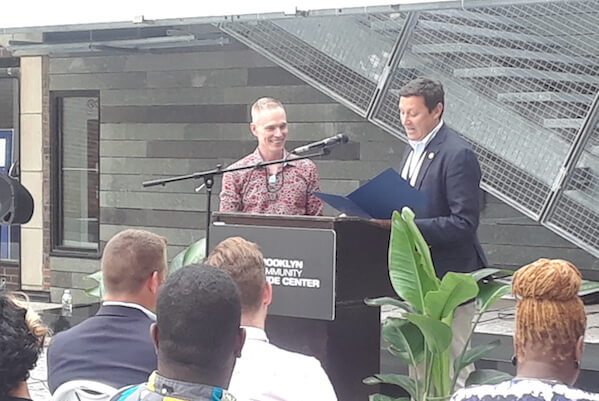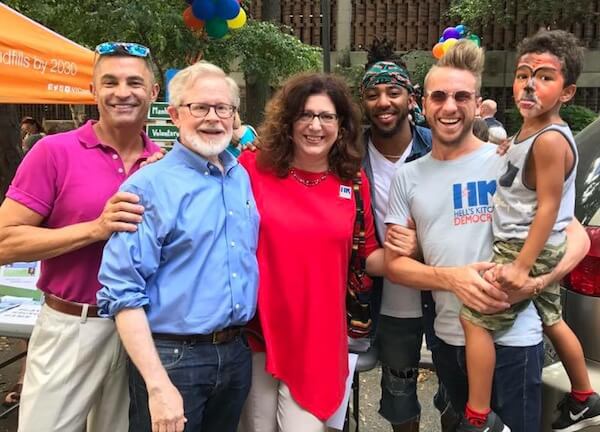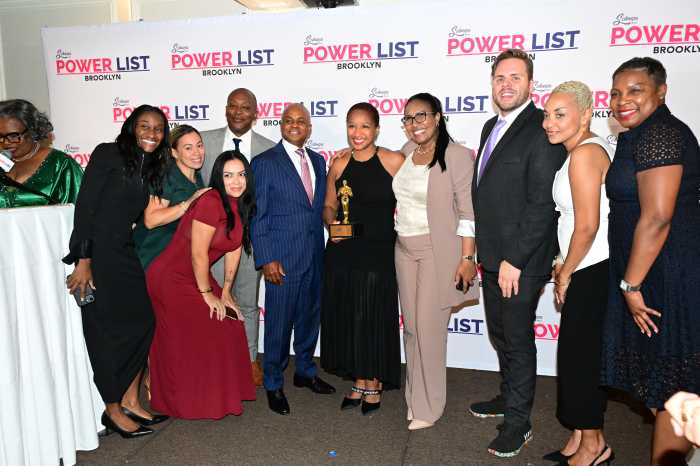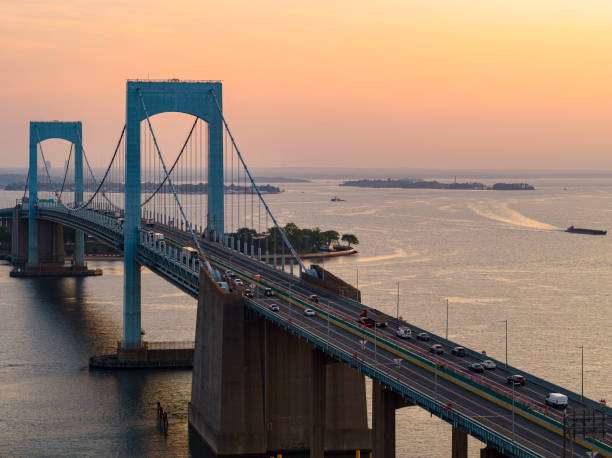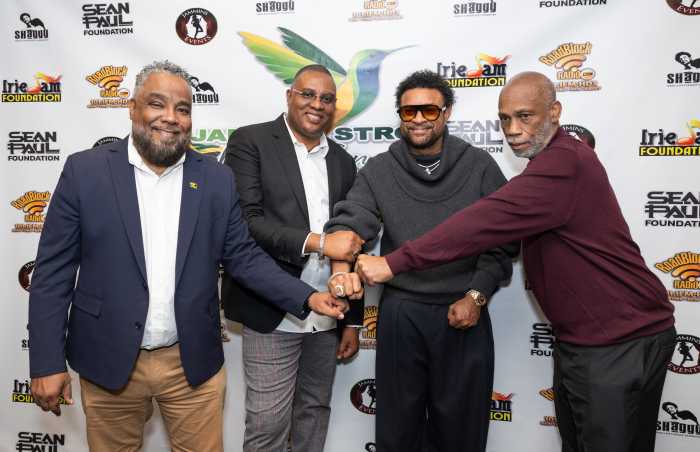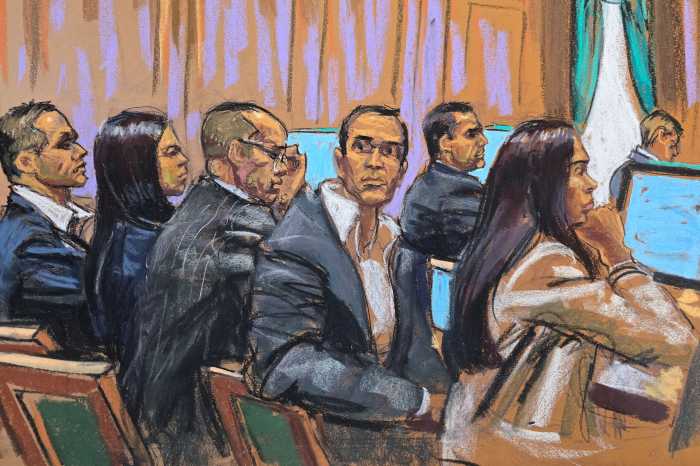Members of Make the Road New York, on June 13, demanding justice for transgender women in Queens. | ANDY HUMM
BY ANDY HUMM | “Trans Power!” “Keep Your Hands Off My Sisters!” “Don’t Fuck with Us!”
Those chants rang out one day after the atrocity in Orlando as scores of transgender Latinas and their allies brought their mourning and defiance to the sidewalks of Jackson Heights, Queens. On the evening of June 13, they marched 40 blocks from their Roosevelt Avenue headquarters at Make the Road New York, across the commercial strip of 37th Avenue, and then back again onto busy Roosevelt Avenue.
“This is where we bring things home — to our neighborhoods,” out gay City Councilmember Daniel Dromm, representing the most diverse neighborhood in the country, told the crowd at a pre-march rally. “I started Queens Pride to show people that we are in this community — in every community. The transgender community has suffered a lot and been attacked right here in Jackson Heights. We’re upset about Orlando. We know we are under attack here, too. We are all in this fight together.”
Fifth annual march highlights violence facing community, pledges solidarity with Muslim Americans
It was the fifth annual Translatina March and planned long before the Orlando massacre, in the wake of which organizers committed themselves to “work with the Muslim community and other communities of color to end violence and hate.”
Speaker after transgender Latina speaker, mostly recent immigrants speaking in Spanish, testified to the perils they fled in their homelands and the continued threats they face daily here in New York.
Bianey Garcia, the LGBT organizer for Make the Road New York, at the June 13 march. | ANDY HUMM
Victoria from Honduras said it was hard to leave her country, “but the government there does not help and there is violence from organized groups.” But in Queens, she said, she had to deal with a stalker who would not believe that she is not a sex worker and “beat me with a chain” and threatened to kill her. With Dromm’s help, the police caught the perpetrator and found that he was a drug-dealing gang member.
“Why don’t we seek help from the police?” asked Xena who works with the New York City Anti-Violence Project and the Sylvia Rivera Law Project. “We trans people are at high risk for violence, especially police violence. We rely so much on ourselves for safety. We need support from outsiders — from bystanders.”
Dromm said that an added problem with getting these victims of discrimination and violence to come forward is their lack of legal status here.
City Councilmember Daniel Dromm and Public Advocate Letitia James join the marchers. | OFFICE OF COUNCILMEMBER DANIEL DROMM
“Hate is nothing new to the transgender community,” said Public Advocate Letitia James, invoking Islan Nettles, who was murdered in Harlem in 2003, and Pearl Love, a woman attacked on a city subway because of anti-transgender hatred. “Our country is still far from where it needs to be.”
Several of the speakers spoke of having to walk the streets as inconspicuously as possible to avoid harassment and worse, but on the night of the march they felt they could be themselves — with safety in numbers.
“We usually keep our heads down and hope for the best,” said Bianey Garcia, the LGBT organizer for Make the Road, which led the march.
Many of the bystanders on the street met the marchers with blank or curious looks, but the transgender women did not encounter any hostility and were applauded and high-fived by many others as they passed by Latino and South Asian businesses and residents.
Hector Figueroa, president of Local 32BJ SEIU, one of the city’s major labor leaders, joined the march midway.
“I live in Jackson Heights,” he said. “We’re calling for an end to the violence that is tearing our families apart.”
Three of the Orlando victims, Figueroa said, were from his hometown in Puerto Rico.

